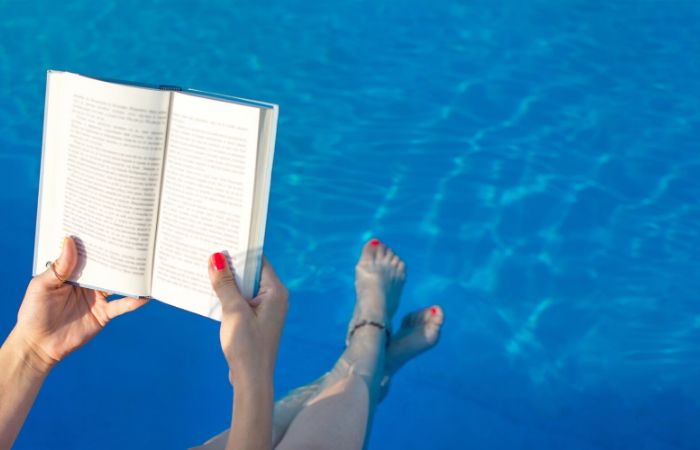Fun Facts About Swimming and Swimming Pools
Posted by Dunn Rite on Jul 2nd 2020
Swimming is an absolutely fantastic sport. It is a test of both strength and endurance. It is a sport that people can perform by themselves (as long as they have a body of water). Because there is almost no impact on the body’s joints, it is hard for people to hurt themselves swimming (unless they swim into the wall)! Anyone who is interested in swimming pools might find some of our swimming pool fun facts intriguing!
Free-divers Have Impressive Lung Capacities
Today, there are scuba divers who use tanks of oxygen to reach some of the deepest depths of the ocean. Before scuba gear came into existence, free-divers specialized in this very activity! While most people can only hold their breath for a minute or two underwater, free-divers can hold their breath for up to ten minutes at a time! The world record for holding your breath is actually more than 24 minutes! These incredible athletes are the product of years of training and hard work.
Many Swimmers Have Incredibly Flexible Toes
In order for swimmers to make their bodies as hydrodynamic as possible, they need to point their toes as far back as possible. This means that many swimmers can point their toes so far that they make a straight line with their lower leg! Some swimmers can even lay with their backs on the ground, point their toes, and touch the ground! Who knew that a swimmer would require such amazing flexibility?
An Olympic Swimming Pool Can Fill Thousands of Bathtubs
It takes about 70 gallons of water to fill up a typical bathtub. Depending on the depth of an Olympic swimming pool, it could have close to 700,000 gallons of water. This means that it could fill 10,000 bathtubs! Think about this while playing pool volleyball or pool basketball this summer. Or while you are launching in for your 15th cannonball, someone get the hose!
Swimmers Sweat an Incredible Amount
When people are in the water, they often don’t think about just how much they are sweating. After all, the pool is already wet, so do swimmers even sweat? In fact, swimmers sweat a lot! One study indicated that swimmers lose about 125 mL of sweat for each km swam! While most swimmers might not be aware of this because they are swimming, this is why swimmers get thirsty! It is essential for swimmers, like all athletes to stay hydrated before, during and after their swim.
Many People Cannot Swim
Swimming is important not only as a form of exercise but also for safety reasons. A survey was conducted in 2014 by the American Red Cross. This survey found that more than half of Americans are unable to swim!
The Youngest International Competitive Swimmer Was 10 Years Old
When people think about international swimming, they often think about Olympic athletes who are in the 20's. The youngest competitive international swimmer was actually ten years old! She represented Bahrain at the World Championships in 2015.
Tortoise Shells and Goggles
Goggles are important for allowing people to see underwater; however, many people don’t realize that the first goggles were actually made from the shells of tortoises! They debuted back in the 1300's in Persia. The rubber goggles of today didn’t show up until the 1930's.
The First Indoor Swimming Pool on a Cruise Ship
Today, almost every cruise ship has a swimming pool of some sort. The first cruise ship to feature one was called the Adriatic. She was a sister ship of the Titanic. She was also the fastest ship! On deck swimming pools have come a long way since that first one!
Swimmers Shave their Bodies
While most people know that swimmers shave their bodies, they might not actually know why. There is a common idea that swimmers shave to make them more hydrodynamic. While this is true, this is not the only reason why. Swimmers also shave because it removes the dead skin cells from their bodies. This allows them to feel the water better, allowing them to adjust their technique accordingly.
Swim Lessons at Two Months of Age
Parents who want to introduce their kids to the water early should know that kids can start swimming lessons at two months of age! The most common age to take swimming lessons is between one and four years old. Babies who start swimming lessons early are said to be safer while around the water.
These are a few of the most interesting facts when it comes to swimming pools and swimmers. If you are looking for pool products that will enhance your fun in the sun this summer, take a look at our amazing pool basketball and pool volleyball units to add an element of fun to your swimming pool!
Dunn-Rite Pool Products & Pool Accessories
3rd Generation Family Owned Company with a long history of developing innovative products of the highest quality.
Pool Fountains - Combo Units - Pool Volleyball - Pool Basketball



